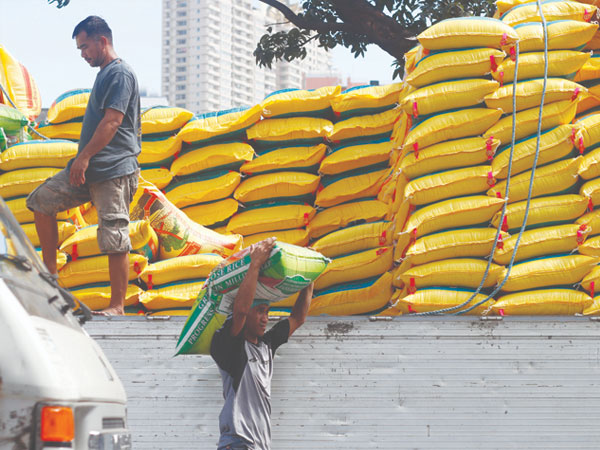 PRESIDENT Ferdinand Marcos has ordered a 60-day suspension on rice importation, but withheld any tariff adjustments for now, to stop the slump in the farmgate price of palay (unhusked rice), according to Malacañang.
PRESIDENT Ferdinand Marcos has ordered a 60-day suspension on rice importation, but withheld any tariff adjustments for now, to stop the slump in the farmgate price of palay (unhusked rice), according to Malacañang.
The chief executive granted the Department of Agriculture’s recommendation to temporarily halt rice importation starting 1 September 2025 “to protect local farmers [who are] reeling from low palay prices during this current harvest season.”
“The President issued the directive after consulting with Cabinet members on the sidelines of his 5-day State Visit to India, and upon the recommendation of Agriculture Secretary Francisco Tui-Laurel Jr.,” Presidential Communications Office (PCO) Secretary Dave M. Gomez said in a statement on Wednesday.
Marcos made the decision after the Philippine Statistics Authority (PSA) reported that the average farmgate price of rice dropped P16.99 per kilo last month from P24.93 per kilo in the same period in 2024.
Industry sources interviewed by BusinessMirror said the farmgate price of palay has now even dropped to as low as P8 per kilo.
The retail price for local commercial rice, however, remains high and ranges from P30 to P45 per kilo for regular milled and P37 to P52 per kilo for well milled based on the price monitoring of DA in major markets in Metro Manila as of 5 August 2025.
Despite the drop in rice farmgate prices, Marcos said it is time to raise the current 15 percent rice tariff, which he imposed under Executive Order No. 62.
“We will still see if we need to resort to that. Right now the decision is to suspend all rice importation for 60 days beginning Sept. 1,” Gomez said.
Aside from the rice import suspension, DA also earlier proposed raising the rice tariff to 25 percent.
Salceda: Necessary shock treatment
A former legislator threw his support behind the decision to restrict rice imports, calling it “a necessary shock treatment” in order to “recalibrate market conditions.”
Former House of Representatives Ways and Means Committee Chairperson Joey Sarte Salceda also recommended that the government act swiftly on buffer stocking through the National Food Authority.
“This is not protectionism. It is strategic management. The current system, where a handful of traders dominate logistics, warehousing, and pricing, has captured the gains of liberalization and transferred the risks to our farmers,” Salceda said.
In July 2024, the government already reduced the most-favored nation tariff on rice imports from 35 percent to 15 percent to stabilize prices, Salceda said.
However, he said, the main beneficiaries of the tariff reduction are not consumers or farmers but importers, traders, and millers. Salceda said while the prices of regular- and well-milled rice as well as special grade rice decreased, farmgate prices increased.
Salceda said palay prices dropped 31.8 percent to P16.99 per kilogram in June 2025 from P24.93 per kilogram in June 2024. He added that in some areas, farmgate prices reportedly reached as low as P8 per kilo, well below production cost.
“The result is a margin of P8 to P12 per kilogram captured by intermediaries, while farmers suffer losses and consumers see only modest relief,” Salceda said.
“I was the principal author of the Philippine safeguard measures law during our accession to the World Trade Organization. I have always believed that trade can be good for everyone, but I have also insisted that certain sensitive sectors, such as food and agriculture, require salutary protection when national welfare is at stake,” Salceda said.














© Copyright 2025 The SSResource Media.
All rights reserved.